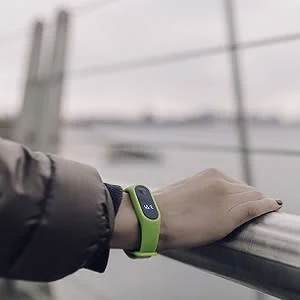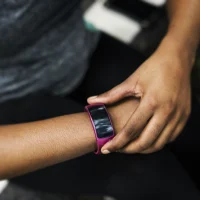Fitness wearables and apps help patients to take a more active role in their wellness and chronic disease management. While data from wearables benefit the users (patients), these are often not readily accessible to care providers who could use such data to inform treatment decisions.
To address this problem, Google and Fitbit have announced a new partnership that will connect Fitbits to the Google Cloud API, making patient-generated health data from wearable technology available in some EHRs. The seamless transfer of health information will help providers access a more holistic view of patient health, ideally improving health outcomes.
Connecting wearable technology and other mHealth tools to the EHR has long been a goal for connected health experts. Although Google and Fitbit did not indicate to which EHRs they will seamlessly connect, Vice President of Healthcare at Google Cloud, Gregory Moore, MD, PhD, did say that these innovations will make patient-generated health data more useful.
“At Google, our vision is to transform the way health information is organised and made useful,” Moore said. “By enabling Fitbit to connect and manage key health and fitness data using our Google Cloud Healthcare API, we are getting one step closer to this goal. Together, we have the opportunity to deliver up-to-date information to providers, enhancing their ability to follow and manage the health of their patients and guide their treatment.”
An important area of the new collaboration to improve patient activation in chronic disease management. Through an agreement with Fitbit’s recently-acquired Twine Health, patients and providers will be able to work together to manage conditions such as diabetes and hypertension.
According to Fitbit CEO and co-founder James Park, this new partnership will lead to more meaningfully used wearables and mHealth technology in the patient sphere.
“Over the past decade, we have built an incredible foundation as the leading wearables brand, helping millions of people around the world make lasting behavior changes that improve their health and wellness through fun and engaging experiences,” Park said in a statement. “Working with Google gives us an opportunity to transform how we scale our business, allowing us to reach more people around the world faster, while also enhancing the experience we offer to our users and the healthcare system. This collaboration will accelerate the pace of innovation to define the next generation of healthcare and wearables.”
The Google and Fitbit partnership will leverage various best practices for health data and cloud security, the pair asserted. Fitbit will also have access to Google Cloud’s various health data analytics functions and population health management tools.
There is growing evidence that healthcare organisations that integrate mHealth tools into patient care yield better patient satisfaction. In fact, an April 2018 survey from Vanson Bourne found that 95 percent of hospitals that have incorporated mHealth into their patient engagement technology efforts saw higher patient satisfaction scores.
Source: PatientEngagementHIT.com
Image Credit: Pixabay
Latest Articles
Google, Fitbit, fitness wearables, mHealth tools
Fitness wearables and apps help patients to take a more active role in their wellness and chronic disease management. While data from wearables benefit the users (patients), these are often not readily accessible to care providers who could use such data










